Articles Tagged with #longreads
-
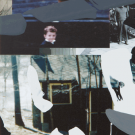
Investigations
I Wish That We Could Both Be There
by William DettloffIn 1974, a car hits a seven-year-old boy in central New Jersey. The boy dies. From 2013, a former friend starts to probe the causes, effects, statistics, and consequences.
-

Letters From London
Home on the Thames
by Jonathan BellLondon’s evolution is measured in centuries, not years. But when half of the city’s new abodes go to foreign buyers—frequently as third or fourth homes—who’s steering the design? Assessing Battersea’s return from 30 years in the desert, just in time for a brand new American embassy.
-
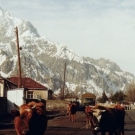
The Travel Desk
Rainy Night in Georgia
by Dave SeminaraEven in the most forsaken corners of the Caucasus, daily life can boil down to domestic turmoil, hip-hop videos, and arguing over Bryan Adams’s nationality.
-
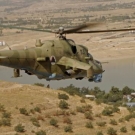
Our Foreign Correspondence
Smog of War
by Jonathan GourlayMore than a decade after the U.S. invasion of Afghanistan—now our longest war—most Americans still know next to nothing about the people who live there, and the liberties denied them. Lessons from a rapid education.
-
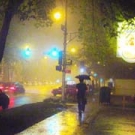
The View From the Lighthouse
Right Here Waiting
by Edward McClellandAfter frequenting a local haunt where nobody knows his name, a Chicago writer makes new friends, rips on Richard Marx online, and then suddenly lands a real live celebrity musician at their door.
-

Birnbaum V.
Ben Fountain
by Robert BirnbaumOur man in Boston sits down for an extended chat with the author of Billy Lynn’s Long Halftime Walk, covering Kissinger’s travel woes, the beauty of track meets, and the very best place to be a fiction writer in America: Dallas.
-
Announcements
The Most Tweetable Sentences of 2012
by The EditorsWe asked Paul to choose his favorite articles published on TMN in 2012. We had a pretty good year, we like to think: Many stories we loved, many reprints and nods...
-

The Global Desk
The Perfect Forecast
by Graham T. BeckPredicting the weather is an incredibly complicated task. Stopping it altogether is even more difficult—but that doesn’t mean scientists aren’t trying. Obsession, cloud seeding, and very powerful storms.
-

Birnbaum V.
Attica Locke
by Robert BirnbaumOur man in Boston talks to screenwriter and novelist Attica Locke about writing in Hollywood, the origins of her second novel, and where exactly British prisoners locate the moral heart of The Wire.
-
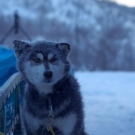
The Travel Desk
Twilight on the Tundra
by Julia PhillipsHow do you see what mushers see? You mush. An adventure on the Beringia, a dog sled race stretching over Russia’s easternmost tundra. If in the process you see more than you ever expected—more of humanity, more of yourself—then thank the people of 685 miles of snow.
-
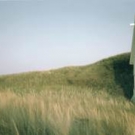
Our Passions, Our Day Jobs
The Death of Farmbrain
by Amy HalloranThese days, everyone seems to enjoy tending chickens and eating local. But lifestyles are rarely ways of life, and the grain that goes into our daily bread is still easiest to obtain from giant operations. Visiting a dying small farm shows why.
-
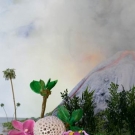
The Global Desk
North Korea Won’t Be Liberated in a Day
by Mike Deri SmithNorth Korea’s prison camps are roundly condemned as heinous, but remain untouched. When an idealistic young reporter takes on a mission to help shut them down—bearing Hemingway and Vollmann in mind—he winds up on the doorstep of the Embassy of the People’s Democratic Republic of Korea.